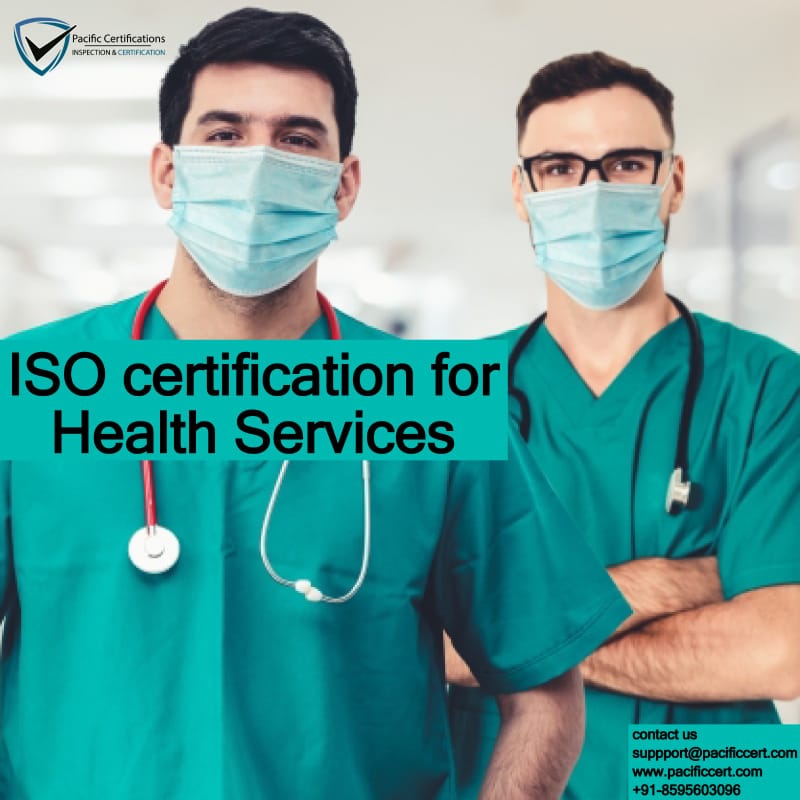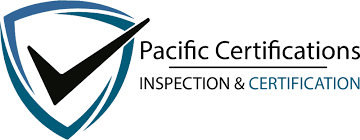ISO Certifications for Health Services, Requirements and Benefits

ISO standards for Health Services
ISO 9001:2015
Quality Management Systems: This is one of the most widely recognized certifications. It ensures that organizations provide consistent quality services that meet customer and regulatory requirements. Health services can use ISO 9001 to streamline their processes and increase efficiency.
ISO 13485:2016
Medical Devices - Quality Management Systems: Specifically designed for medical device manufacturers, this standard can also be applicable to health services that use or manage medical devices. It covers aspects like device design, development, and production.
ISO 15189:2012
Medical Laboratories - Requirements for Quality and Competence: This standard is specifically for medical laboratories. It focuses on the quality and competency of medical laboratory services, which includes the examination and processing of clinical samples, calibration of instruments, and ensuring the accuracy of test results.
ISO 27001:2022
Information Security Management Systems: Health services handle sensitive patient data. ISO 27001 helps protect this data by ensuring that robust information security management systems are in place.
ISO 45001:2018
Occupational Health and Safety Management Systems: This standard helps organizations improve employee safety, reduce workplace risks, and create better, safer working conditions, which is crucial in a health service environment.
Click here to find out more applicable standards to your industry
How Pacific Certifications Can Assist with Audit and Certification?
We at Pacific Certifications can provide comprehensive support in obtaining ISO certifications for health services. Here’s how they can help:
- Gap Analysis: Initially, we can conduct a gap analysis to determine the current position of your health service relative to the ISO standard requirements. This helps in identifying areas that require improvement before a formal assessment is made.
- Training and Awareness: We can provide training sessions to ensure that all employees understand the ISO standards and the organization's objectives in relation to these standards. This is crucial for successful implementation and maintaining ongoing compliance.
- Documentation Assistance: Proper documentation is critical for ISO certifications. We can help in developing, organizing, and reviewing the necessary documentation to meet the ISO standards’ requirements.
- Pre-assessment Audit: Before the actual certification audit, we can conduct a pre-assessment audit to ensure that your organization is fully prepared. This audit will help identify any remaining gaps and provide a chance to rectify them.
- Certification Audit: we will conduct the formal certification audit. If the audit is successful, they will issue an ISO certification, which is valid for a certain period before re-certification is required.
- Continuous Improvement and Support: After certification, Pacific Certifications can assist with regular surveillance audits and provide ongoing support to ensure that your health services maintain ISO standards and continuously improve processes.
We ensure that the certification process is handled professionally and that the certifications are recognized globally, enhancing the credibility and operational effectiveness of your health services.
ISO certification for health services provides a structured framework to manage and improve quality in healthcare environments. Different ISO standards address various aspects of health service delivery. Below are some key requirements generally associated with obtaining ISO certification, followed by the benefits these certifications can offer to health services.
Requirements for ISO Certifications for Health Services
The requirements for ISO certification can vary depending on the specific standard being applied. However, some common requirements across various ISO standards include:
- Leadership Commitment: Top management must demonstrate a commitment to the implementation of the management system. This includes ensuring that resources are available, policies are communicated and understood, and the management system is integrated into the organization's processes.
- Risk Management: Identifying, assessing, and managing risks associated with organizational processes that impact the quality and safety of health services.
- Documented Information: Establishing and maintaining documentation that is required by the standard, as well as any documentation deemed necessary by the organization for the effectiveness of the management system.
- Process Approach: Implementing and managing processes in accordance with ISO standards. This includes planning, implementation, control, and continual improvement of these processes.
- Quality Control and Assurance: Methods for ensuring that the services meet the necessary quality standards and continuous quality improvement mechanisms are in place.
- Patient and Employee Safety: Specific protocols and measures must be in place to ensure the safety of both patients and healthcare staff.
- Employee Competence: Ensuring that all employees are competent based on appropriate education, training, or experience and keeping records of these competencies.
- Performance Evaluation: Regular monitoring, measurement, analysis, and evaluation of the performance of the quality management system, followed by necessary actions.
- Continuous Improvement: The organization must continually improve the suitability, adequacy, and effectiveness of its management system.
Benefits of ISO Certifications for Health Services
The benefits of ISO certification for health services are manifold, impacting various aspects of healthcare delivery:
- Enhanced Quality of Care: ISO standards help structure the quality management system that directly contributes to the efficiency and effectiveness of healthcare services, enhancing patient satisfaction.
- Increased Efficiency: Streamlining organizational processes and reducing waste leads to more efficient operations. This can result in faster service delivery and reduced cost.
- Compliance with Regulations: ISO certifications ensure that health services are compliant with international standards and local regulations, reducing the risk of legal or regulatory penalties.
- Improved Risk Management: With better risk management processes in place, health services can foresee potential issues and mitigate them before they escalate, thus enhancing patient and employee safety.
- Competitive Advantage: ISO certification can be a significant competitive advantage, distinguishing your organization from others in terms of quality assurance and reliability in health service delivery.
- Staff Engagement and Development: Certification processes improve engagement by involving staff in process improvements and training. This enhances job satisfaction and promotes a culture of continuous improvement.
- Enhanced Reputation: Achieving ISO certification can enhance the reputation of a health service, building trust with patients, suppliers, and stakeholders.
Conclusion
In summary, while obtaining ISO certification requires significant commitment and resources, the benefits in terms of improved service quality, operational efficiency, and patient satisfaction are substantial.
Pacific Certifications is accredited by ABIS, in case you need support with ISO certification for your health care business, please contact us at [email protected] or +91-8595603096.
Ready to get ISO certified?
Contact Pacific Certifications to begin your certification journey today!
Suggested Certifications –
Read more: Pacific Blogs

